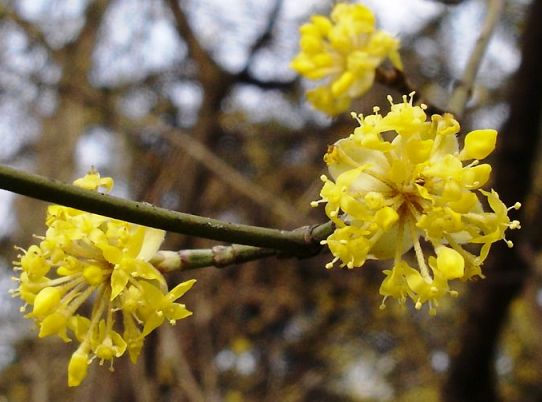اللّهُمَّ إنِّي أَسْأَلْكَ مَن فَضْلِكَ ورَحْمَتِكَ فإنَّهُ لا يَملِكُها إلاَّ أنْتَ، اللَّهُمَّ أحسَنتَ خَلْقِي فَأحْسِنْ خُلُقِي رِبِّ اغْفِرْ، وارْحَمْ واهْدِنِي السَّبِيلَ الأقْوَمَ
Warss (Ceylon Cornel tree)
وَرْسٌ: ذكر الترمذى في (جامعه): من حديث زيد بن أرْقمَ، عن النبىِّ صلى الله عليه وسلم ( أنه كان ينعَتُ الزَّيْتَ والوَرْسَ من ذات الجَنْبِ)، قال قتادةُ: يُلَدُّ به، ويُلَدُّ من الجانبِ الذي يشتكِيه. وروى ابن ماجه في (سننه) من حديث زيد بن أرقم أيضاً، قال: (نعتَ رسولُ اللهِ صلى الله عليه وسلم مِن ذَاتِ الجَنْبِ وَرْساً وقُسْطاً وزيتاً يُلَدُّ به)(حديث ضعيف). وصَحَّ عن أُمِّ سلمة رضى الله عنها قالت: (كانت النُّفَسَاءُ تَقْعُدُ بعدَ نِفاسِهَا أربعينَ يوماً، وكانت إحدانا تَطْلى الوَرْسَ على وَجْهِهَا من الكَلَف). قال أبو حنيفة اللُّغوىُّ: الوَرْسُ يُزرع زرعاً، وليس ببَرِّىٍّ، ولستُ أعرفه بغيرِ أرضِ العربِ، ولا مِن أرض العرب بغير بلاد اليمن. وقوتُه في الحرارة واليُبوسة في أوَّل الدرجة الثانية، وأجودُه الأحمرُ اللَّيِّن في اليد، القليلُ النُّخالة، ينفع من الكَلَفِ، والحِكَّة، والبثور الكائنة في سطح البدن إذا طُلِىَ به، وله قوةٌ قابضة صابغة، وإذا شُرِبَ نفع مِن الوَضَحِ، ومقدارُ الشربة منه وزنُ درهم.وهو في مزاجه ومنافعه قريبٌ من منافع القُسْط البحرىِّ، وإذا لُطخ به على البَهَق والحِكَّة والبثورِ والسُّفعة نفع منها، والثوبُ المصبوغ بالوَرْس يُقوِّى على الباه
Narrated by Tirmizi, Zaid Bin Al-Arqam Radi Allaho Anh said that "Prophet Muhammad Sallallaho Alaihe Wasallam advised to treat Pleurisy by using Olive oil & Warss".
Furthermore, Ibn-e-Majah narrated from Zaid Bin Al-Arqam Radi Allaho Anh that "Prophet Muhammad Sallallaho Alaihe Wasallam recommended using Warss, Qust-al-Bahri & Olive oil for Pleurisy" (Weak Hadith).
Umm-e-Salamah Radi Allaho Anha narrated, "The woman who had just delivered (a baby) would remain for forty days afterwards (without praying or fasting in Nifaas). One of us would then overlay Warss on her face to help against the spots". Abu Hanifah, a linguist said, "Warss does not grow in the wild. Rather, it is cultivated. I think that it is only grown in the Arab lands, especially in Yemen".
Warss is dry and hot in the second degree. The best type of Warss is the red Warss, which is soft in the band and does not have much bran. Warss is used as an ointment to treat spots, rashes and pimples that appear on the surface of the skin. Warss constipates, has a drying quality and helps against leprosy when taken as a drink. Warss has similar benefits to Qust-al-Bahri, and if it is used as an ointment, it relieves Bars ~ Vitiligo (skin condition of unknown cause, characterized by patchy loss of pigment), rashes, pimples and ulcers. When the clothes are dyed with Warss, they strengthen the sexual drive.
Because we have forgotten Tibb-e-Nabawi, many of the blessed herbs are lost somewhere in this world, but still they are present. Low demand of Warss could not enforce the farmers to cultivate it on a larger scale, hence the price has raised extra-ordinarily, it is sold as 800/- Saudi Riyals per kg in Saudi Arabia, in Yemen, it is around SR 300/- per kg. Because of the high price, it can be replaced with Qust-al-Bahri if needed to use as a facial mask (for removing the spots) & even for Pleurisy.

